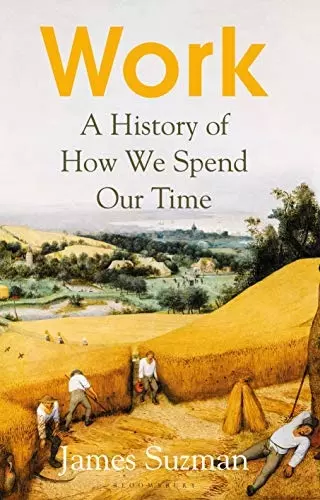Work
James Suzman
"Work", James Suzman
Fascinating but slightly off-target
This is a fascinating informative book, but one which only obliquely addresses the target of its title. James Suzman writes engagingly on his specialty of anthropology. We learn from masked weaver birds and from termite colonies how excess harvesting of energy generates work. Observations from the Ju/’hoansi in the Kalahari, Neanderthals and Natufians seem a small sample to conclude that ‘for 95% of our species’ history, work did not occupy anything like the hallowed place in people’s lives that it does now’ (p127), even if true. Fire reduced the need for work, leading to boredom which gave time for other creative activities, including art, entertainment, and the development of technology. Foraging and farming paradigms are discussed at length. Suzman covers lots of topics including animal labour, slave labour, Ricardo’s labour theory of value, barter and money economies, the Roman empire, industrialisation and Luddites, inequality, the manufacturing efficiency of Taylorism, Lubbock and reduced hours of work. His eclectic learning at times reads like a brain dump, always interesting, (Kellogg intended cornflakes as an anaphrodisiac (p342), J K Galbraith was 6 foot 8 inches tall (p345) etc, but not necessarily relevant to his purported argument.
Of more contemporary relevance, he covers ‘The Great Decoupling’ whereby real wages flatlined against soaring productivity (p350), and the bifurcation of the labour market into huge executive salaries and the impoverishment of ‘bullshit jobs’ (p352), with amusing special derision for the McKinsey consulting company (p355, 393), workaholism, and environmental damage. Automation has led to false jobs, a bulging service sector, and ‘bureaucratic bloat’ (p385), all of which are derivative phenomena and not necessarily justified per se, - ‘jobs that served no obvious purpose other than giving someone something to do’ (p383), with low job satisfaction (p387).
Following this extensive background, Suzman does not go on to address the core implications of automation and associated unemployment, ie loss of work as income, role, and activity. He gives one line to universal basic income (p410), which has to be the essential remedy to technological unemployment, since in a totally automated economy with no work or wage, UBI would be the only and necessary source of income. The need for UBI therefore increases in proportion to the prevalence of automation in the production economy. Human ontology, identity, dignity, and fulfilment will no longer rely on employment in factories and offices, but will be more intrinsic. This may represent a challenge to humanity, but one which promises fruitful outcomes. It is this philosophical switch in self-understanding from a paradigm of work dependency which Suzman could usefully have examined further.
The book is available here.
Geoff Crocker
Editor ‘The Case for Universal Basic Income’
www.ubi.org

